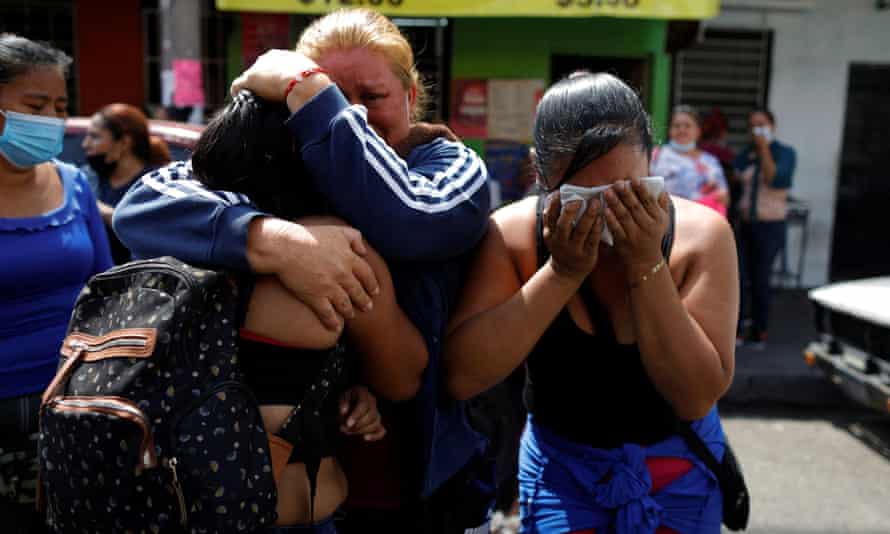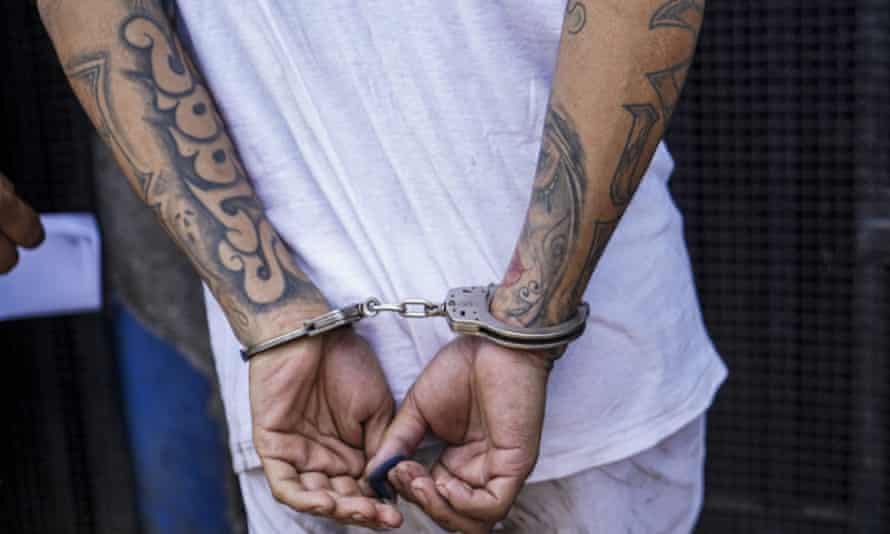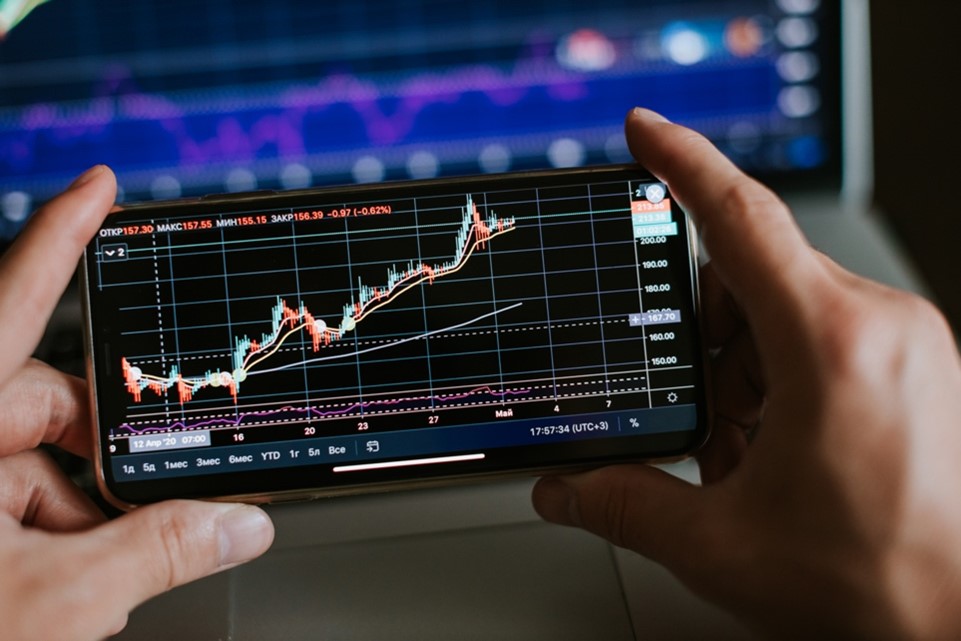Distraught families across El Salvador are searching for information on the fate of their loved ones after almost 6,000 people were arrested in an unprecedented security crackdown over the past week.
Men, women and children have been rounded up across the Central American country since the government declared a state of emergency on 27 March, suspending constitutional rights including the presumption of innocence.
President Nayib Bukele, an authoritarian populist who uses Twitter to announce policies and denounce his enemies, has said that the detainees are all gang members and that they will not be released.
The state of emergency was declared after three days of violence left 87 dead, which Bukele blamed on the Mara Salvatrucha gang known as MS-13.
While the police claim to have captured the MS-13 leaders who ordered the killings, there is mounting evidence that ordinary people who live or work in gang-dominated neighbourhoods have been arrested arbitrarily.
In the capital, San Salvador, hundreds of wives and mothers have been gathering outside a navy base that houses one the largest police holding cells. Vans loaded with handcuffed detainees arrived throughout the week as members of an evangelical church handed out small cups of sherbet to tearful relatives camped out in the baking sun.
Carmen Rodríguez, 33, does not know why her husband, brother and nephew were arrested a week ago while unloading a truck of secondhand clothes for their business at the city’s main market in the historic quarter.
“When we asked the police why they were taking them, they just insulted us,” said Rodríguez, who is struggling to find the money to pay for their meals. “They are taking the righteous for sinners. It is good for the police to do their job, but it is unfair that they also take away working people – and even worse that they treat them like animals,” she said.

Last week Bukele announced on Twitter that food for gang inmates would be rationed to feed the new detainees as he wasn’t prepared to take money from the education budget to feed “terrorists”.
The 30-day state of emergency allows detainees to be held for 15 days – rather than the usual three – without access to a defence attorney and without prosecutors having to make a case in front of a judge. The decree, which also allows police to search cellphones and messages, could be extended.
The national assembly, which is controlled by Bukele’s allies, also passed legislation increasing jail terms for juveniles and allowed indefinite pre-trial detention for suspected gang members.
Zaira Navas, a lawyer at the Salvadoran human rights group Cristosal, said: “The detainees have lost their right to defence and do not have the right to know the reasons for their arrest.”
Despite the wide scope of the new emergency powers, reports suggest that other constitutional rights are also being violated.
Rosa López said police forced their way into her house in Santa Tecla in the La Libertad region on Saturday 26 March and arrested her 20-year-old cousin who suffers from a heart condition. He should have been assigned a lawyer and appeared in court after three days as he was arrested a day before the state of emergency, but he remains incommunicado.
“The police didn’t ask, they just entered the house and took him away. They were crazy that day, capturing everyone … It is terrible what they are doing to him and to us. It is not only unfair but it is also illegal,” said López, 26.
The crackdown is popular with many voters who are fed up with the gangs, but has led to the lockdown of entire neighbourhoods.

At a military checkpoint one afternoon last week in Santa Tecla, soldiers armed with AK-47s examined vehicles and checked people’s identity cards and proof of address before letting them in or out of the neighbourhood. Anyone regarded as suspicious was forced to strip, so troops could check for gang-related tattoos.
Only those deemed to have a legitimate reason to be out and about could pass.
“Builders and informal workers can’t leave. They are locked up, prisoners. Luckily I have a formal job and [my employer] has issued a letter. But if we want to go out shopping after work we can’t. There is nothing we can do,” said a 35-year-old woman who preferred not to give her name.
Astrid Valencia, Central America researcher at Amnesty International, said: “We are alarmed not only that the measures suspend fundamental elements of due process, but also by President Bukele’s confrontational discourse, which stigmatises and attacks human rights defenders, civil society organisations, international NGOs and independent media for expressing their concerns about those measures.”
Bukele has taken an increasingly combative stance with anyone daring to question his government, and recently claimed that human rights NGOs, the Inter-American Commission for Human Rights and George Soros’s Open Society Foundations – which provides grants to NGOs and independent media in El Salvador – are gang associates.
Ha quedado claro quiénes son los socios de los pandilleros.
Todos han salido a defenderlos:
Financistas, narcos, políticos y jueces corruptos, ONGs de “derechos humanos”, la “comunidad internacional”, la CIDH, periodistas y medios de Open Society, etc.
Se quitaron la máscara.
— Nayib Bukele (@nayibbukele) April 4, 2022
Even before the mass arrests, El Salvador had one of the most overcrowded prison systems in the world, with about a quarter of detainees being held in pre-trial detention.
While mayor of San Salvador, Bukele claimed to support socially driven crime prevention and rehabilitation programs to tackle the country’s intractable gang violence. Since coming into power in 2019, he has reverted to the same mano dura or repressive tactics of previous governments, while at the same time secretly negotiating a truce with gang leaders, according to the US.
Bukele denies the allegations, but the telephones of journalists reporting on the negotiated truce were hacked using Israeli spyware.
Names of victims and their relatives have been changed

